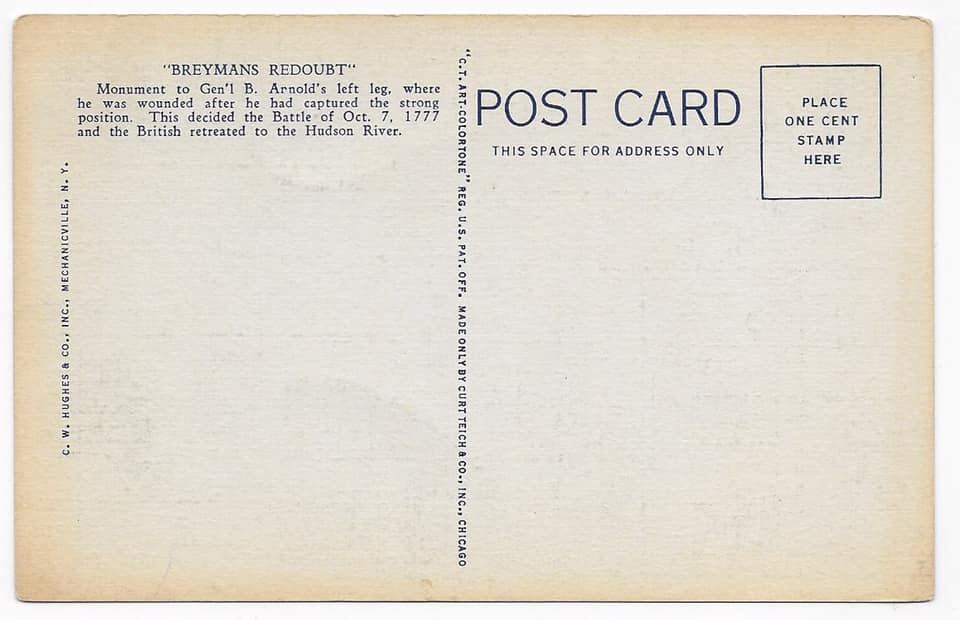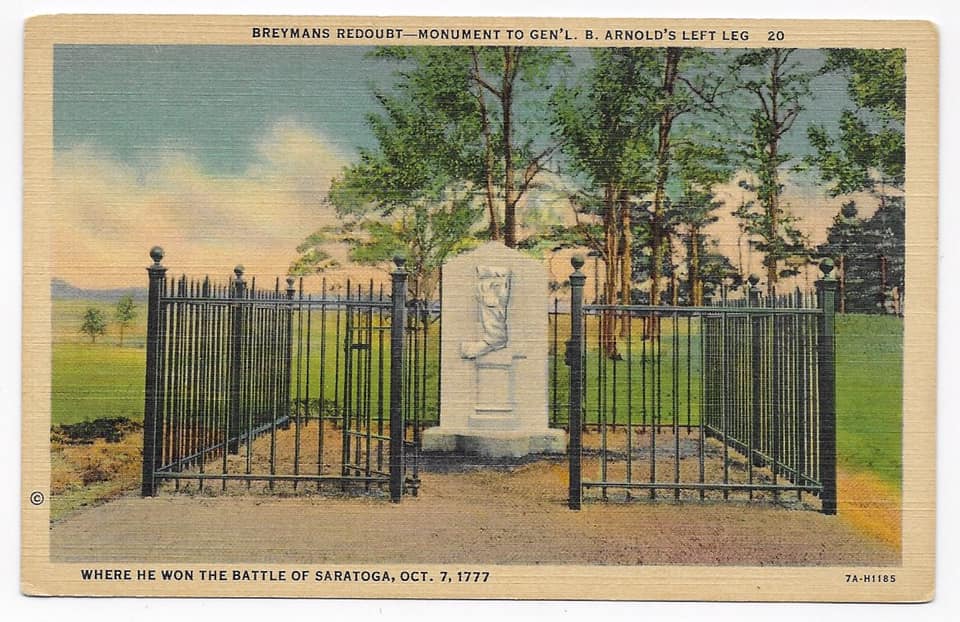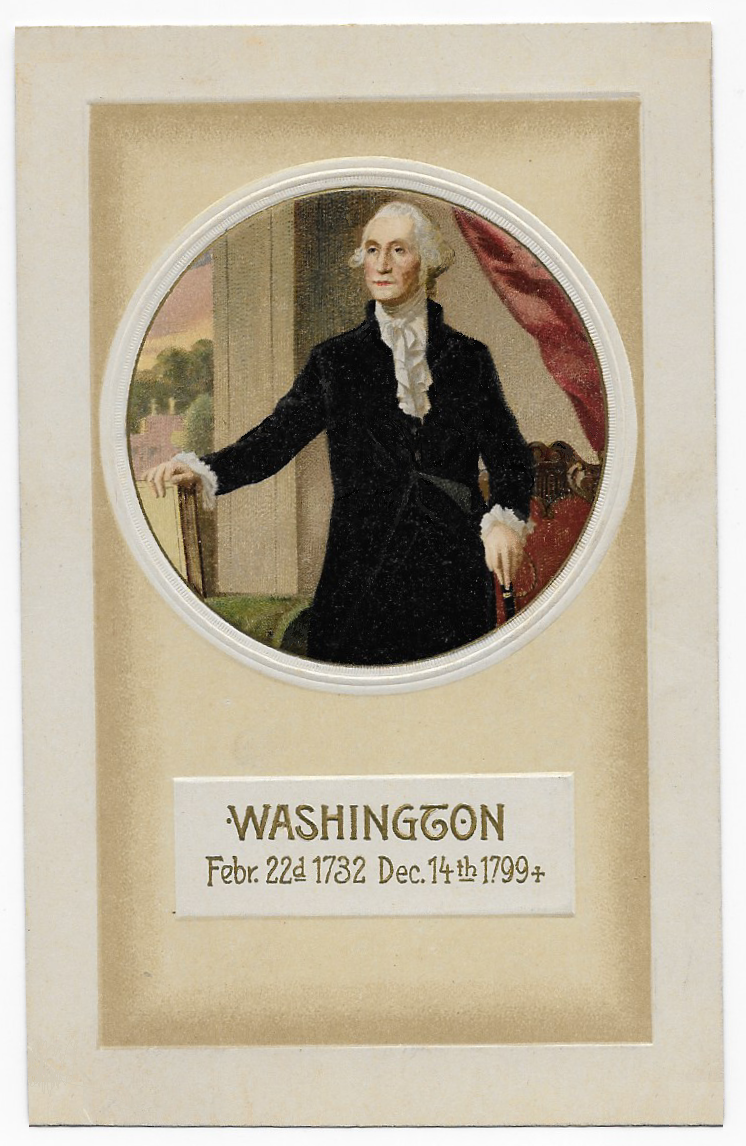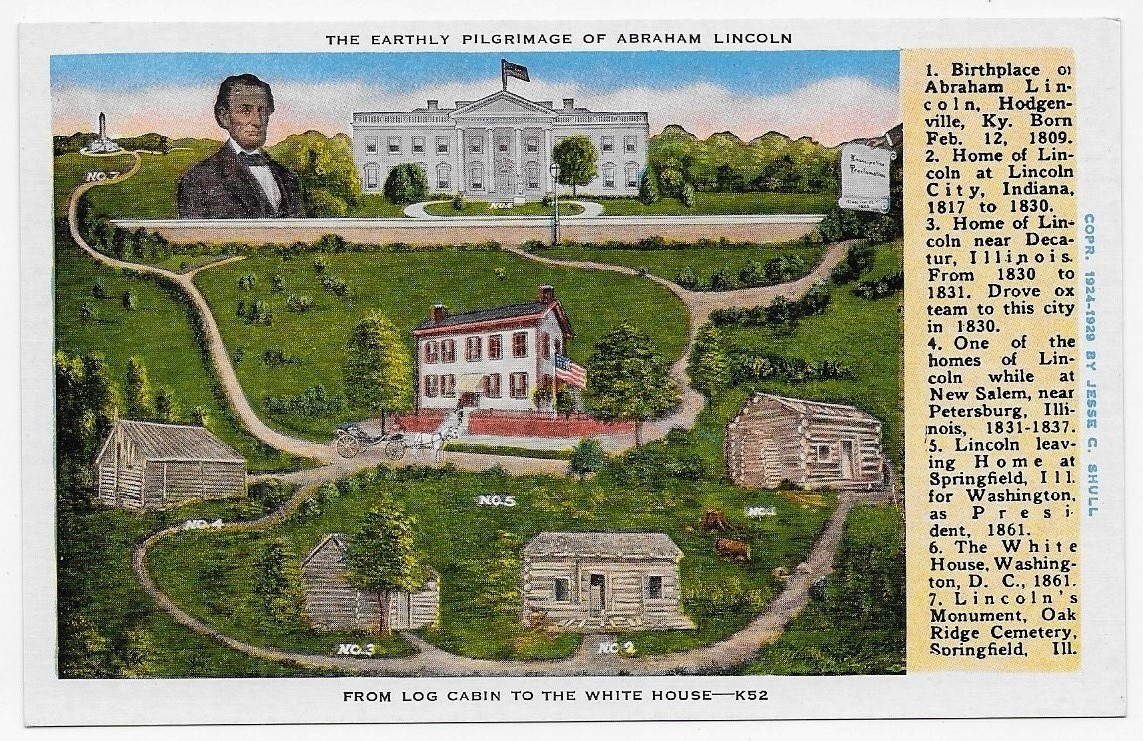Benedict Arnold, whose name is now synonymous with “traitor”, was once a hero in the fight for American Independence.
His daring exploits for the Colonial cause were not always successful, and he was never popular with many fellow officers due to his jealousies, resentments, and perpetual feuds.
Nevertheless, Arnold took decisive action in the Battle of Saratoga that ensured the defeat of General Burgoyne and that proved, in time, to be a turning point in the Revolution.
During that engagement, Arnold suffered a significant wound to his leg, one of several injuries that crippled him in later life.
The “Boot Monument” was erected in 1887 by Major General De Peyster (the scion of one of the great landowning families in Dutch “New Amsterdam”) who had published a history of the Battle of Saratoga.
Interestingly, the monument honors the valor of the warrior of Arnold’s rank, but it omits Arnold’s name.
In the Comments, I link a short article about the Boot Monument which includes the inscription.
Benedict Arnold remains an interesting character – his early life was one of reversals of fortune (he could not complete his education due to his mother’s death, father’s alcoholism, and failure of the family business.)
He seems to have passed through life with high ambition and a giant “chip on his shoulder”.
Opportunities were continually provided to him in respect of his energy and abilities, but Arnold continually felt thwarted and unappreciated.
Arnold enjoyed the trappings of wealth, and his checkered career in business was marked by continuous legal struggles and efforts to escape from debt.
The great act of treason, haggling with the British over a fee for turning over the fortification at West Point, occurred while Arnold was also locked in yet another contest with the Continental Congress over compensation and honors that Arnold felt were owed to him.
Many historians cast blame on Peggy Shippen, the young heiress of a wealthy Tory family in Philadelphia.
Arnold married Peggy and was introduced to a wealthy, younger set of Tory sympathizers.
It is clear that Peggy was instrumental in passing coded messages and plans related to the surrender of West Point.
(West Point, had it fallen, would have given the British control of the entire Hudson Valley and accomplished the objective that was denied at Saratoga.)
Interestingly, the city of Lancaster has historical connections to the Shippen family, although not to Peggy or to her husband, Benedict Arnold.





